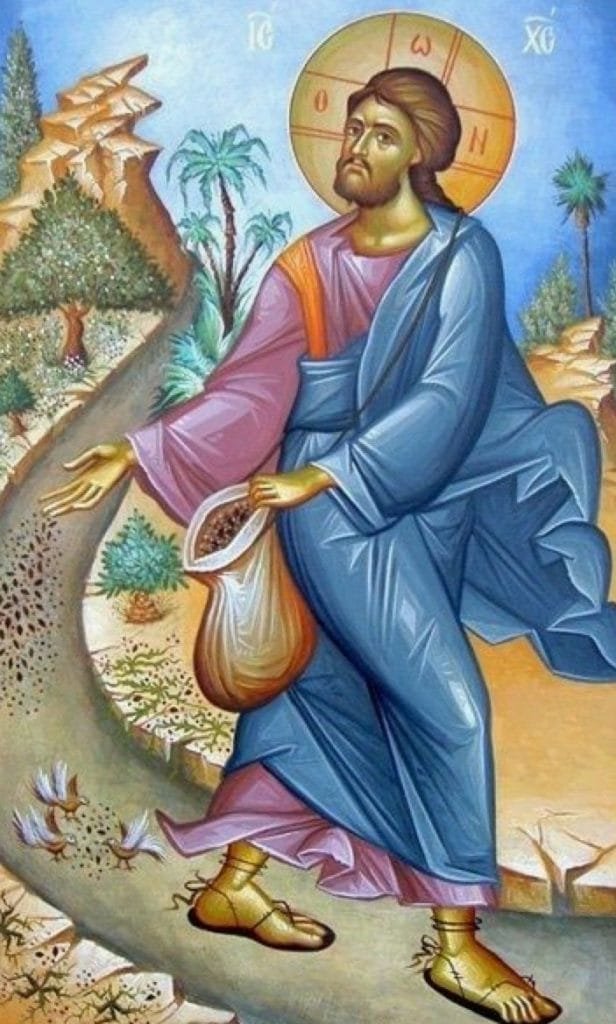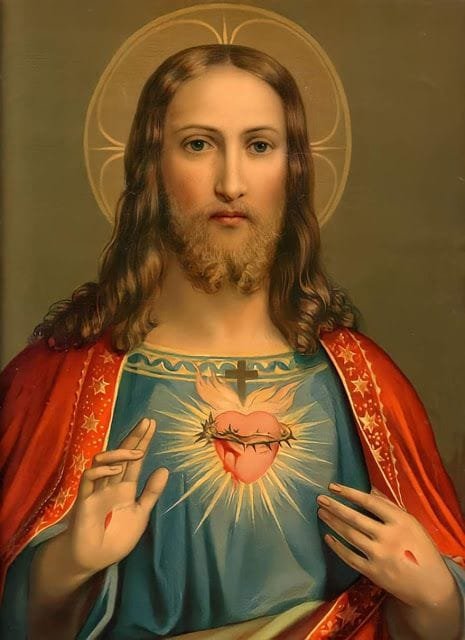POPE FRANCIS ON THE 11TH SUNDAY IN ORDINARY TIME YEAR B

ANGELUS
St Peter’s Square
Sunday, 16 June 2024
________________________________________
Dear brothers and sisters, happy Sunday!
Today the Gospel of the liturgy speaks to us of the Kingdom of God through the image of the seed (cf. Mk 4:26-34). Jesus uses this simile several times (cf. Mt 13:1-23; Mk 4:1-20; Lk 8:4-15), and today He does so by inviting us to reflect in particular on an important attitude connected to the image of the seed: it is the attitude of confident expectation.
Indeed, in sowing, no matter how good or abundant the seed the farmer scatters, or how well he prepares the land, the plants do not sprout immediately: it takes time and it takes patience! Therefore, it is necessary that, after having sown, he knows how to wait confidently, to allow the seeds to open at the right moment and the shoots to sprout from the seed and grow, strong enough to guarantee, at the end, an abundant harvest (cf. vv. 28-29). Underground the miracle is already in progress (cf. v. 27), there is enormous development, but it is invisible, it takes patience, and in the meantime it is necessary to to keep tending the turf, watering it and keeping it clean, despite the fact that on the surface nothing seems to be happening.
The Kingdom of God is like this too. The Lord places in us the seeds of His word and His grace, good seeds, abundant seeds, and then, without ever ceasing to accompany us, He waits patiently. The Lord continues to take care of us, with the confidence of a Father, but He gives us time – the Lord is patient – so that the seeds open, grow and develop to the point of bearing the fruits of good works. And this is because He wants nothing in His field to be lost, that everything should reach full maturity; He wants us all to be able to grow like ears of grain.
Not only this. By doing so, the Lord gives us an example: He teaches us too to sow the Gospel confidently wherever we are, and then to wait for the seed that has been sown to grow and bear fruit in us and in others, without becoming discouraged and without ceasing to support and help each other even where, despite our efforts, we do not seem to see immediate results. In fact, often even among us, beyond appearances, the miracle is already underway, and in due course it will bear abundant fruit!
Therefore, we can ask ourselves: do [I] let the Word be sown in me? Do I too sow the Word of God with confidence in the places where I live? Do I wait patiently, or am I discouraged because I do not see the results immediately? And do I know how to entrust everything serenely to the Lord, while doing my best to proclaim the Gospel?
May the Virgin Mary, who welcomed and made the seed of the Word grow within her, help us to be generous and confident sowers of the Gospel.
Source and copyright: https://www.vatican.va/content/francesco/en/angelus/2024/documents/20240616-angelus.html
Dicastero per la Comunicazione – Libreria Editrice Vaticana
EMPHASIS MINE

ANGELUS
Saint Peter’s Square
Sunday, 13 June 2021
Dear Brothers and Sisters, Buongiorno!
The two parables, which the Liturgy presents us today, – the two parables – are inspired precisely by ordinary life and reveal the attentive and deep gaze of Jesus, who observes reality and, through small everyday images, opens the windows on the mystery of God and on the succession of human events. Jesus spoke in a way that was easy to understand; he spoke with images of reality, of everyday life. In this way, he teaches us that even everyday things, which at times all seem the same and which we carry on with distraction or effort, are inhabited by God’s hidden presence; that is, they have meaning. So, we too need attentive eyes, to be able “to seek and find God in all things.
Today Jesus compares the Kingdom of God, that is, his presence that dwells in the heart of things and of the world, to the mustard seed, that is, to the smallest seed there is: it is really tiny. Yet, cast upon the ground, it grows until becoming the tallest tree (cf. Mk 4:31-32). This is what God does. At times, the din of the world, along with the many activities that fill our days, prevent us from stopping and seeing how the Lord is conducting history. Yet – the Gospel assures us – God is at work, like a good little seed that silently and slowly germinates. And, little by little, it becomes a lush tree, which gives life and rest to everyone. The seed of our good works too can seem like a small thing, yet all that is good pertains to God, and thus it humbly, slowly bears fruit. Good, let us remember, always grows in a humble way, in a hidden, often invisible way.
Dear brothers and sisters, with this parable Jesus wants to instill us with confidence. In so many of life’s situations, indeed, it may happen that we get discouraged, because we see the weakness of good as compared to the apparent power of evil. And we may allow ourselves to be paralyzed by doubt when we find we are working hard but the results are not achieved, and things seem never to change. The Gospel asks us to take a fresh look at ourselves and at reality; it asks us to have bigger eyes, that are able to see further, especially beyond appearances, in order to discover the presence of God who as humble love is always at work in the soil of our life and that of history. This is our confidence, this is what gives us the strength to go forward every day, patiently, sowing the good that will bear fruit.
How important this attitude also is for coming out of the pandemic well! To cultivate the confidence of being in God’s hands and at the same time for all of us to commit ourselves to rebuilding and starting up again, with patience and perseverance.
In the Church too, weeds of doubt can take root, especially when we witness the crisis of faith and the failure of different projects and initiatives. But let us never forget that the results of sowing do not depend our abilities: they depend on the action of God. It is up to us to sow, and sow with love, with dedication and with patience. But the force of the seed is divine. Jesus explains it in today’s other parable: the farmer sows the seed and then does not realize how it bears fruit, because it is the seed itself that grows spontaneously, day and night, when he least expects it (cf. vv. 26-29). With God in the most infertile soil there is always the hope of new sprouts.
May Mary Most Holy, the Lord’s humble handmaid, teach us to see the greatness of God who works in the little things and to overcome the temptation of discouragement. Let us trust in Him every day!

ANGELUS
Saint Peter’s Square
Sunday, 17 June 2018
Dear Brothers and Sisters, Good morning!
In today’s Gospel passage (cf. Mk 4:26-34), Jesus speaks to the crowd about the Kingdom of God and the dynamics of its growth, and he does so by recounting two brief parables. In the first parable (cf. vv. 26-29), the Kingdom of God is compared to the mysterious growth of the seed, which is cast upon the ground and then sprouts, grows and produces ears [of grain], independent of the care of the farmer who, when it is fully grown, sees to its harvest. This is the message that this parable conveys to us: through Jesus’ teaching and action, the Kingdom of God is proclaimed, has burst into the field of the world and, like the seed, grows and develops by itself, through its own strength and according to humanly incomprehensible criteria. In its growth and development in history, it does not depend much on man’s doing, but is above all an expression of the power and goodness of God, of the strength of the Holy Spirit who brings forth Christian life in the People of God.
At times history, with its events and its protagonists, seems to go in the opposite direction of the design of the heavenly Father, who wants justice, fraternity and peace for all his children. But we are called to live out these periods as seasons of trial, of hope and of vigilant expectation of the harvest. Indeed, yesterday like today, the Kingdom of God grows in the world in a mysterious way, in a surprising way, revealing the hidden power of the little seed, its victorious vitality. Within the folds of personal and social events which at times seem to signal the failure of hope, it is important to remain confident in God’s subdued but powerful way of acting. For this reason, in moments of darkness and of difficulty we must not lose heart, but remain anchored in faithfulness to God, to his ever-saving presence. Remember this: God always saves. He is the Saviour.
In the second parable (cf. vv. 30-32), Jesus compares the Kingdom of God to a mustard seed. It is a very small seed, yet it grows to become the greatest of all the plants in the garden: an unforeseeable, surprising growth. It is not easy for us to enter this logic of the unforeseeable nature of God and to accept it in our life. But today the Lord exhorts us to an attitude of faith which exceeds all our plans, our calculations, our predictions. God is always the God of surprises. The Lord always surprises us. It is an invitation to open ourselves more generously to God’s plans, both on the personal level and on that of the community. In our communities it is important to pay attention to the little and big occasions of goodness that the Lord offers us, allowing ourselves to engage in his dynamics of love, of welcoming and of mercy toward others.
The authenticity of the Church’s mission does not come through success nor through the gratification of the results, but by going forth with the courage of trust and the humility of abandonment to God. Going forth professing Jesus and with the power of the Holy Spirit. It is the awareness of being small and weak instruments which, in God’s hands and with his grace, can accomplish great deeds, advancing his Kingdom which is “righteousness and peace and joy in the Holy Spirit” (Rom 14:17). May the Virgin Mary help us to be simple, to be attentive, to cooperate with our faith and with our work to develop the Kingdom of God in hearts and in history.

ANGELUS
Saint Peter’s Square
Sunday, 14 June 2015
Dear brothers and sisters, Good morning!
Today’s Gospel is composed of two very brief parables: that of the seed that sprouts and grows on its own, and that of the mustard seed (cf. Mk 4:26-34). Through these images taken from the rural world, Jesus presents the efficacy of the Word of God and the requirements of his Kingdom, showing the reasons for our hope and our commitment in history.
In the first parable, attention is placed on the fact that the seed scattered on the ground (v. 26) takes root and develops on its own, regardless of whether the farmer sleeps or keeps watch. He is confident in the inner power of the seed itself and in the fertility of the soil. In the language of the Gospel, the seed is the symbol of the Word of God, whose fruitfulness is recalled in this parable. As the humble seed grows in the earth, so too does the Word by the power of God work in the hearts of those who listen to it. God has entrusted his Word to our earth, that is to each one of us with our concrete humanity. We can be confident because the Word of God is a creative word, destined to become the “full grain in the ear” (v. 28). This Word, if accepted, certainly bears fruit, for God Himself makes it sprout and grow in ways that we cannot always verify or understand. (cf. v. 27). All this tells us that it is always God, it is always God who makes his Kingdom grow. That is why we fervently pray “thy Kingdom come”. It is He who makes it grow. Man is his humble collaborator, who contemplates and rejoices in divine creative action and waits patiently for its fruits.
The Word of God makes things grow, it gives life. And here, I would like to remind you once again, of the importance of having the Gospel, the Bible, close at hand. A small Gospel in your purse, in your pocket and to nourish yourselves every day with this living Word of God. Read a passage from the Gospel every day, a passage from the Bible. Please don’t ever forget this. Because this is the power that makes the life of the Kingdom of God sprout within us.
The second parable uses the image of the mustard seed. Despite being the smallest of all the seeds, it is full of life and grows until it becomes “the greatest of all shrubs” (Mk 4:32). And thus is the Kingdom of God: a humanly small and seemingly irrelevant reality. To become a part of it, one must be poor of heart; not trusting in their own abilities, but in the power of the love of God; not acting to be important in the eyes of the world, but precious in the eyes of God, who prefers the simple and the humble. When we live like this, the strength of Christ bursts through us and transforms what is small and modest into a reality that leavens the entire mass of the world and of history.
An important lesson comes to us from these two parables: God’s Kingdom requires our cooperation, but it is above all the initiative and gift of the Lord. Our weak effort, seemingly small before the complexity of the problems of the world, when integrated with God’s effort, fears no difficulty. The victory of the Lord is certain: his love will make every seed of goodness present on the ground sprout and grow. This opens us up to trust and hope, despite the tragedies, the injustices, the sufferings that we encounter. The seed of goodness and peace sprouts and develops, because the merciful love of God makes it ripen.
May the Holy Virgin, who like “fertile ground” received the seed of the divine Word, sustain us in this hope which never disappoints.
Stay updated: subscribe by email for free TO OUR NEW WEBSITE www.catholicsstrivingforholiness.org (PUT YOUR EMAIL IN THE SUBSCRIBE WIDGET).
We are also in www.fb.com/Catholicsstrivingforholiness. Kindly help more people in their Christian life by liking our page and inviting your family, friends and relatives to do so as well. Thanks in advance and God bless you and your loved ones! Fr. Rolly Arjonillo